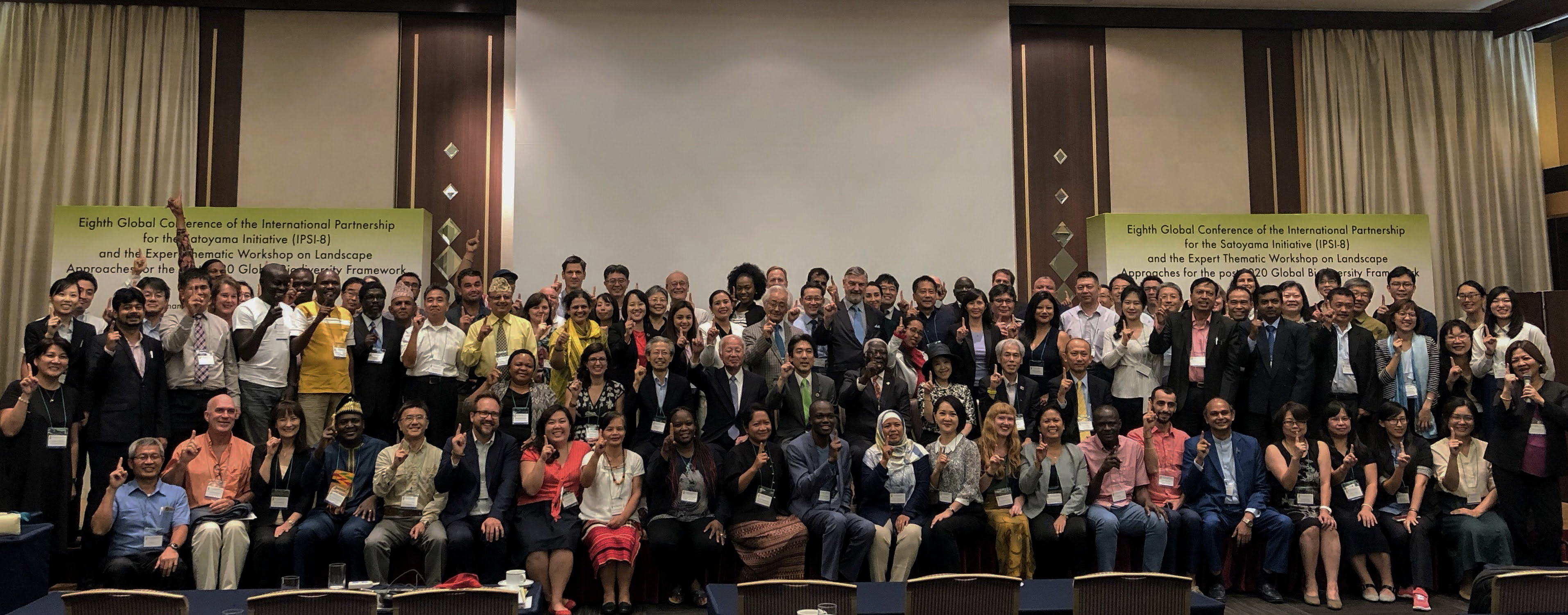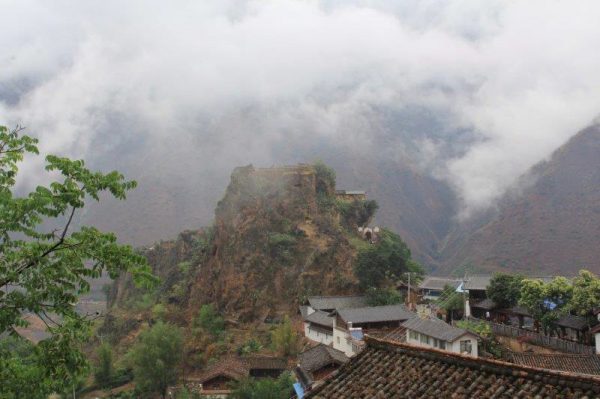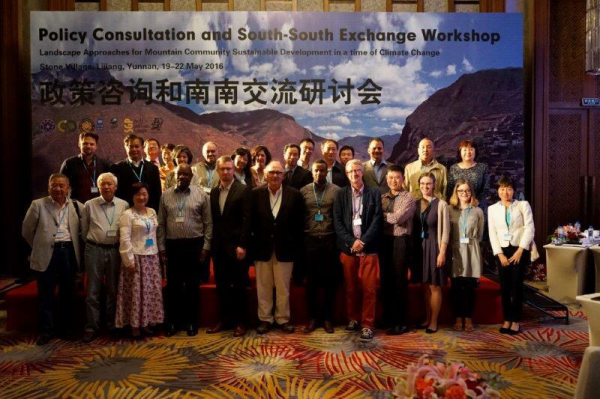An event titled “Landscape Approaches for Mountain Community Sustainable Development in A Time of Climate Change: Policy Consultation and South-South Exchange Workshop” was held in the Baoshan Stone Village of Lijiang, China from 20 to 23 May 2016.
The Workshop was held to explore and promote community-led landscape approaches as critical tools for sustainable development, climate adaptation and poverty alleviation in the context of bio-cultural landscapes. Participants from the International Network of Mountain Indigenous Peoples (INMIP) also engaged in seed exchanges with the community of the Stone Village.
The Workshop mainly consisted of two parts: the Policy Consultation, and the South-South Exchange Workshop in the Stone Village. For the Policy Consultation, participants from various organisations including Biocultural Heritage Territories, Indigenous Community Conserved Areas, UNDP-COMDEKS, IPSI, FAO Globally Important Agricultural Heritage Sites (GIAHS) and UNESCO Biosphere Reserves presented their projects/initiatives. For the South-South Workshop in the Stone Village, in addition to participants above, people from mountainous indigenous communities within the International Network of Mountain Indigenous Peoples (INMIP) also participated.
Mr. Kazuhiko Seriu of the IPSI Secretariat presented an introduction of the Satoyama Initiative and IPSI, and the “Indicators of Resilience in SEPLS” project, and was invited to be one of the discussants in a roundtable addressing two key questions: the importance of designation for indigenous-led landscapes, and the effectiveness of indicators for indigenous-led landscapes. He and Mr. Yohsuke Amano were happy to see representatives of several other IPSI members present and active in the workshop as well.
As outcomes, participants in the workshop agreed that community-led landscape approaches are very important, in particular from the perspective of bio-cultural landscapes. Therefore, they committed to continuing their work through, for example, the following activities:
- Email-based network amongst the participants
- IIED’s website (bio-cultural landscapes)
- Development of indicators of bio-cultural landscapes, or some common sets of indicators





